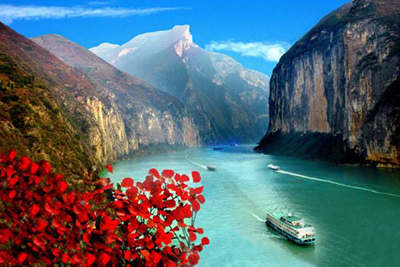Health Issue
By and large, China is a very safe and healthy country to travel in. Medical conditions are improving in most Chinese cities. Nevertheless, some health issues that may impact travelers’ health should be noted if you travel there. The following unbiased advice and travel health tips will help you to stay safe and healthy in China, and make your China tours more smooth.
Before you go
Consult your doctor
Consult your doctor for health advice or a checkup before you travelling to China, especially for those travelers with history of coronary or pulmonary problems. Make sure you are in good health before the journey.
Bring a copy of your medical records, including your doctor’s name, telephone and other important contact details on it.
Check travel health websites
Foreign travelers are also suggested to check resources of world trusted hosting travel and healthy websites or government’s travel advisory website in your own country for travel health recommendations and information.
■ Centers for Disease Control & Prevention (www.cdc.gov)
■ MD Travel Health (www.mdtravelhealth.com)
■ World Health Organization (www.who.int/ith)
■ Australia (www.dfat.gov.au/travel)
■ Canada (www.travelhealth.gc.ca)
■ UK (www.gov.uk/foreign-travel-advice)
■ USA (www.cdc.gov/travel)
Health insurance
Purchase a health insurance or just extend your travel insurance to the health issues.
As an old Chinese saying goes that in nature there are unexpected storms and in life unpredictable vicissitudes. Therefore, even if you are in good health and strong, travel with a health insurance in case of any accidents. It can be an injury when hiking in the wilderness, or potential disease caused by high altitude in Tibet. Make sure you keep all the medical record and documentation.
Recommended vaccinations
No special vaccination is required, but those who have traveled from an infected area before coming to China should have vaccination records available for a health declaration from upon arrival. Besides, The World Health Organization (WHO) and The Centers for Disease Control and Prevention recommend travellers to China receive the following vaccinations: Adult diphtheria and tetanus (ADT), hepatitis A, hepatitis B, Japanese encephalitis, rabies and typhoid, Tuberculosis, varicella and polio.
Special Remarks: Right now there are strict restrictions to China during the COVID-19 pandemic. Travelers will need to do nucleic acid test and be inoculated with Covid-19 vaccines (See here fore more info).
Medical checklist
It is suggested that foreign travelers prepare a person medical kit. Carry necessary medicines in adequate supply; placing them in original containers to declare that they are illegal medicines; some useful medicines for colds, diarrhea or constipation are also suggested to include in your packing list.
While in China
Medical & healthcare conditions
It is true that for most cities in China, medical facilities are still lagging behind. Medical resources are mainly concentrated in major cities such as Beijing, Shanghai, Hangzhou, Guangzhou and Shenzhen. But medical rescue efforts for foreign tourists are always in top priority. There are clinics and hospitals in big cities with Western-trained doctors who speak your language. If you get ill and injured, go the nearest medical facility, and call your insurance company simultaneously.
Chinese food
Foreign travelers to China may not be able to acclimatize to China’s climate and foods in the first several days. China has a wide range of cuisine. In some places, the foods are very spicy, while some street foods are stale foods, which may cause traveler’s diarrhea. See a doctor if have a diarrhea and your medicine doesn’t work.
Advice for healthy dinning in China:
Tap Water
Be aware that tap water in China is not drinkable. You can choose either boiling water or bottled water.
Fresh juices which may be watered down by tap water are also not suggested for travelers.
Air Pollution
Air pollution is one of the major environmental problems in China that may impact traveler’s health. There is air pollution in many big cities including Beijing and Shanghai. Consult your doctor if you have underlying respiratory conditions. And wear a mask if needed.
Recommended destinations without air pollution for international travelers:
Altitude sickness
Travelers to Tibet, Qinghai, Shangri-La Yunnan should mind out the potential altitude sickness. Most of the areas are above 3500m, while some places are even above 5000m. Travelers, especially the elderly people, should seek advice from doctors. People with diseased organs such as the heart, liver, lung, kidney or brain, hypertension patients, pregnant and lactating women, are not suggested to travel to high-altitude areas.
For anyone who visits these areas, you’re advised to travel according to the graded ascent guidelines. For example you may get to Lijiang (at around 2000m) before going to Shangri-La. A rapid ascent may cause Acute mountain sickness (AMS). Besides, ensure that you have a day or two to acclimatize. Drink much water, and don't do any strenuous exercise.
Insect bites & stings
Traveler to southwest China like Yunnan and Guizhou, especially the rural mountainous areas, should be aware of the insect bites and stings, which usually don’t disease, but very itchy and therefore annoying. You may have some ointment and mosquito repellent in your medical kit.
Heat exhaustion
If you travel to China in summer (July & August) with high temperatures above 35 degrees Celsius, make sure you drink enough water and avoid physically demanding activity at noon, or you may suffer from heat exhaustion. Extra salt can be added for your food to avoid salt deficiency.
Traditional Chinese Medicine
With a history of over 2000 years, traditional Chinese Medicine (TCM) was created based on the theories of Yin and Yang, the Five-Elements, Blood and "Qi". TCM Treatment includes acupuncture, massage, cupping, qì gōng (气功), moxa-moxibustion, together with natural herbs and healthy diet.
If you want to try TCM treatment in China, go to the regular hospital or clinic, and take herbal medicine according to the doctor’s prescription. If you take both Western medicine and TCM herbal medicine, make sure you inform both practitioners the other’s prescription, to avoid drug interactions.


